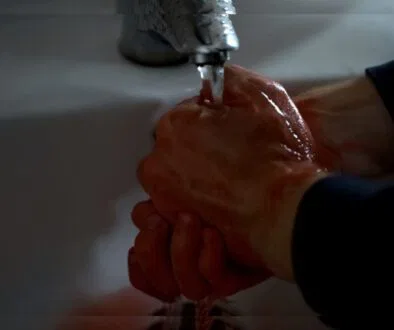What’s the Sentence for Domestic Violence in the US?

Published October 25, 2022
Each state has different laws for domestic violence and related crimes. Consequently, the punishments for these types of crimes vary per state too.
But can you go to jail for domestic violence?
The short answer is, yes. The sentence for domestic violence may vary from state to state and the individual circumstances of the case. But it usually involves jail time. Though very minor infractions may only lead to probation or community service.
To help you understand how punishments for domestic abuse charges are doled out, here’s a quick guide on the sentencing process for domestic violence in the US.
What Counts as Domestic Violence?
The law defines domestic violence as:
a pattern of abusive behavior in any relationship that’s used by one partner to gain or maintain power and control over another intimate partner.
An act doesn’t need to cause physical harm to be considered domestic abuse. Even a mere threat can count as one. Mental, emotional, sexual, economic, and psychological abuses also constitute domestic violence.
Common examples of these types of abuses include:
- intimidation
- manipulation
- coercion
- threats
- humiliation
- terrorization
As long as there is an intimate relationship between two parties, any abusive behavior that causes harm to the other (physical or otherwise) can be considered domestic violence.

ADVERTISEMENT
Sentence for Domestic Violence
The sentence for domestic violence usually depends on the severity of the abuse. Depending on the circumstances of each case, a domestic violence charge can range from a simple misdemeanor to a serious felony.
Misdemeanor
A domestic violence charge is usually classified as a misdemeanor if:
- the crime isn’t that serious
- the offender has no previous criminal record
Though the law varies per state, misdemeanor charges are usually punishable by imprisonment for up to a year. It may also involve paying a fine or restitution to the victim.
In most cases, however, people convicted of misdemeanor crimes are sentenced with:
- probation
- community service
- part-time incarceration
- shorter jail term
Felony
For a domestic abuse charge to be elevated to a felony, it’s usually:
- more serious than a simple misdemeanor
- committed by a repeat offender
Punishment for felonies ranges from a year to life in prison plus penalties depending on its classification. Under federal law, these are the sentences for each type of felony:
- Class E Felony: more than 1 year but less than five years with a maximum penalty of $250,000
- Class D Felony: at least 5 years but less than 10 years with a maximum penalty of $250,000
- Class C Felony: at least 10 years but less than 25 years with a maximum penalty of $250,000
- Class B Felony: 25 years or more with a maximum penalty of $250,000
- Class A Felony: life imprisonment or death with a maximum penalty of $250,000
Not all felony convictions involve jail time though. For less serious felonies or first-time felony offenders, the judge usually commutes the sentence to probation instead of jail time. But if the abuse led to someone getting seriously hurt, the sentence usually involves a lengthy prison sentence.
Reduce Your Jail Call Costs By Up To 90% Per Minute With GlobalTel
GlobalTel’s inmate calling service lowers jail call per minute rates by up to 90% for jail calls from US facilities. Sign up now and use the special jail call phone number we create for you to eliminate the long distance jail call fees. Try GlobalTel for only $45.99 for 90 days. Make US/domestic and international jail calls at the local rate and stay connected to your incarcerated loved ones for less. Learn more about how to sign up for calls from inmates here.

This Content Is Fact Checked
Our esteemed team of specialists has thoroughly validated the accuracy of this information. Discover further details about the rigorous editorial guidelines for our website here.
ADVERTISEMENT

About The Author
Judy Ponio is a professional writer for the GlobalTel blog. She works hard to ensure her work contains accurate facts by cross checking reputable sources and doesn’t settle for less. Her passion for telling stories about true crime and criminal justice has allowed her to create hundreds of articles that have benefited millions of people.




